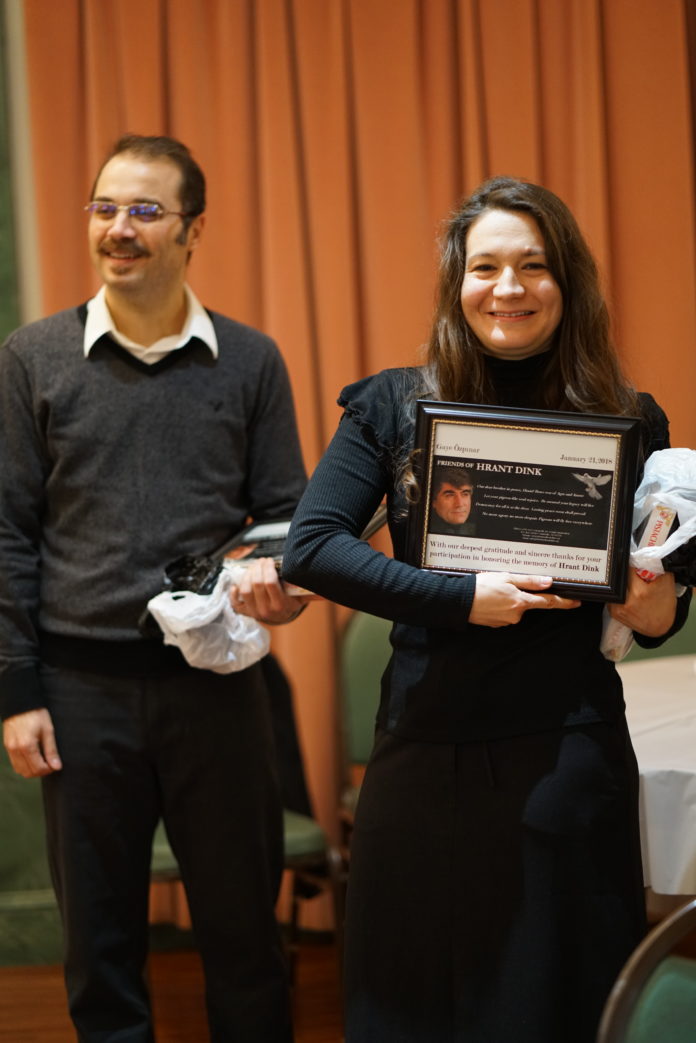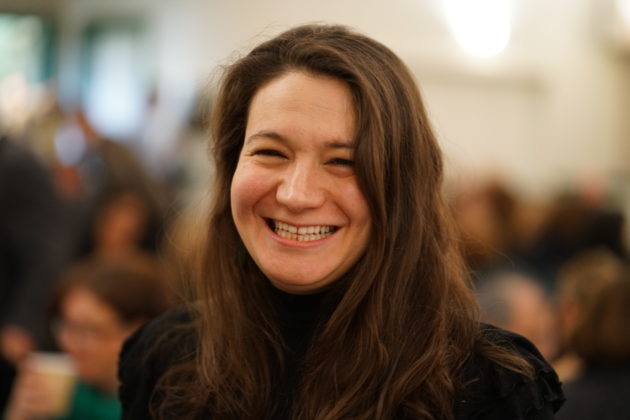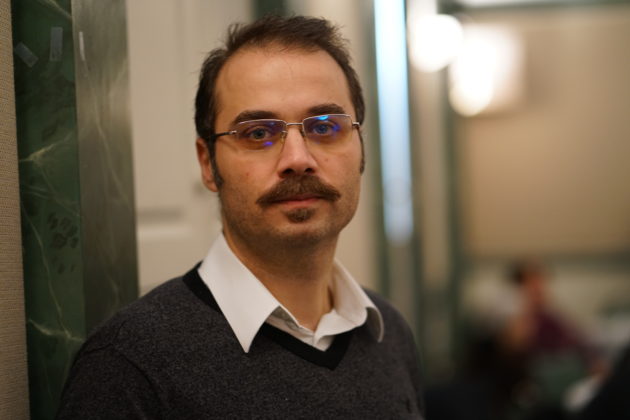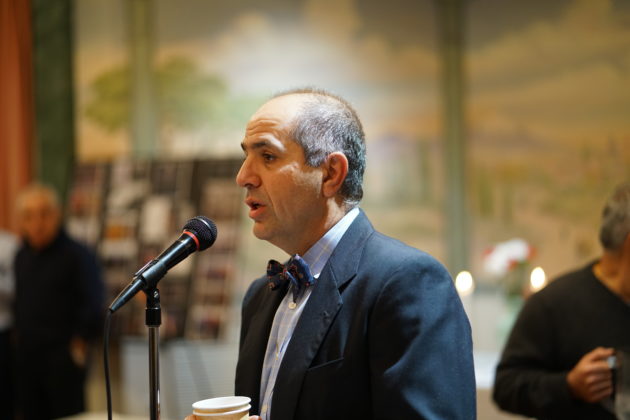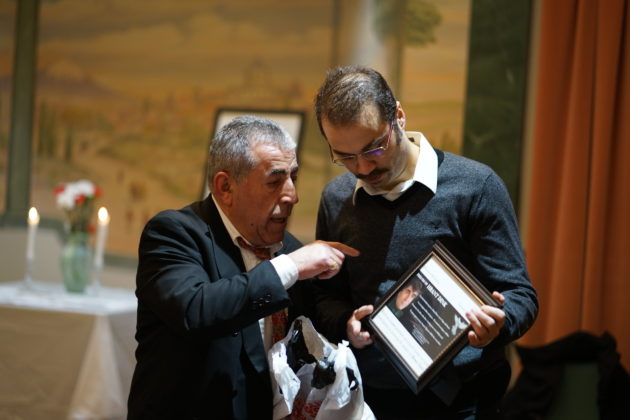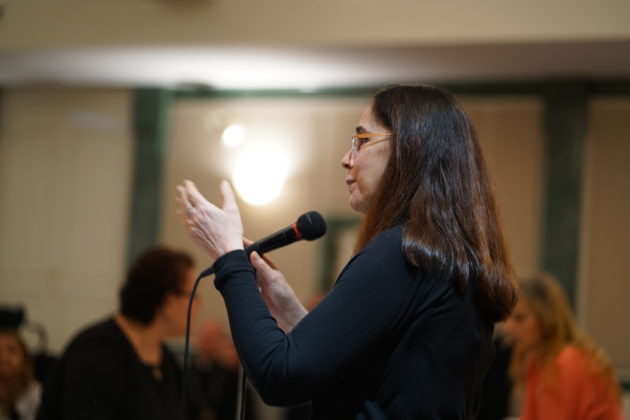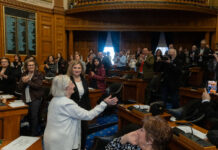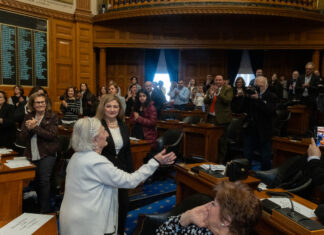By Aram Arkun
Mirror-Spectator Staff
WATERTOWN, Mass. – On Sunday, January 21, St. James Armenian Church’s Armene and Veronica Tarvezian Hall was packed, with standing room only, for a program sponsored by Friends of Hrant Dink commemorating the 11th anniversary of Dink’s death. There were two main speakers, Ohannes Kıliçdağı, and Gaye Özpınar, and a special guest.
St. James pastor Fr. Arakel Aljalian welcomed the audience and introduced Herman Purutyan who served as master of ceremonies. Purutyan in turn introduced the speakers.
First was Ohannes Kılıçdağı, a graduate of Getronagan Armenian High School in his native city of Istanbul. He has a doctorate from Boğaziçi University in Istanbul and taught the social and cultural history of Turkey at Bilgi University, again in Istanbul. He was a research fellow at the University of Michigan in 2012-13, and at present is a visiting post-doctoral fellow at the Center for Middle Eastern Studies at Harvard University. He is a columnist for the Turkish-Armenian newspaper Agos, which Hrant Dink helped found.
Kılıçdağı acknowledged the Kurds and Turks in the audience, and seemed to focus much of his talk on them. He suggested that they moved to the US as part of an accelerating trend of emigration from Turkey among the middle and upper classes because, he said, they thought that “they were not living in a just and free society. They could not see a secure and happy future for themselves nor for their children. As for Armenians, this has been the situation not just for a few years, but for 150 years or more.” In other words, he stressed, in Turkey today everyone has the potential of turning into Armenians, though they are luckier because they are still alive. Sooner or later, he said, anybody in Turkey, unless a just and free society were to be established, might decide to emigrate.



